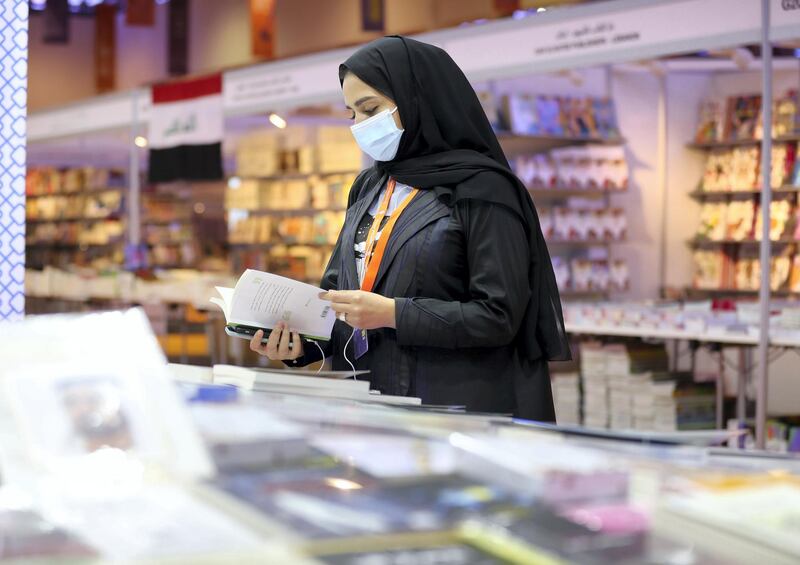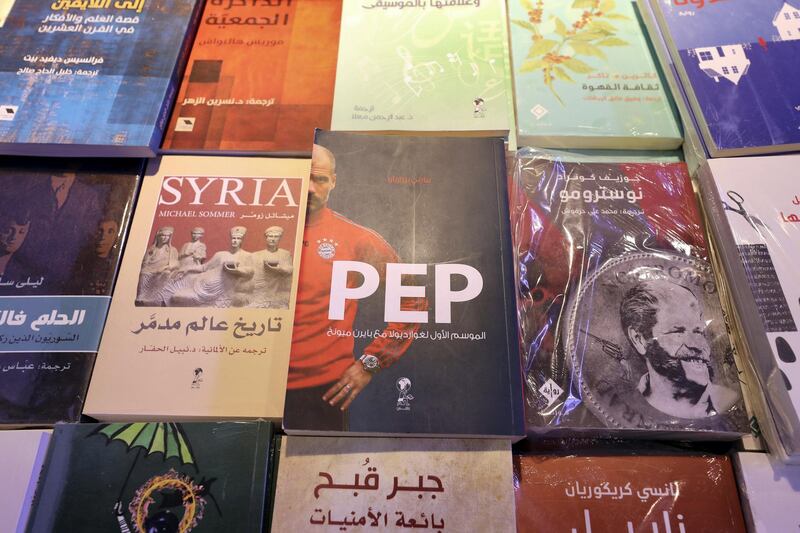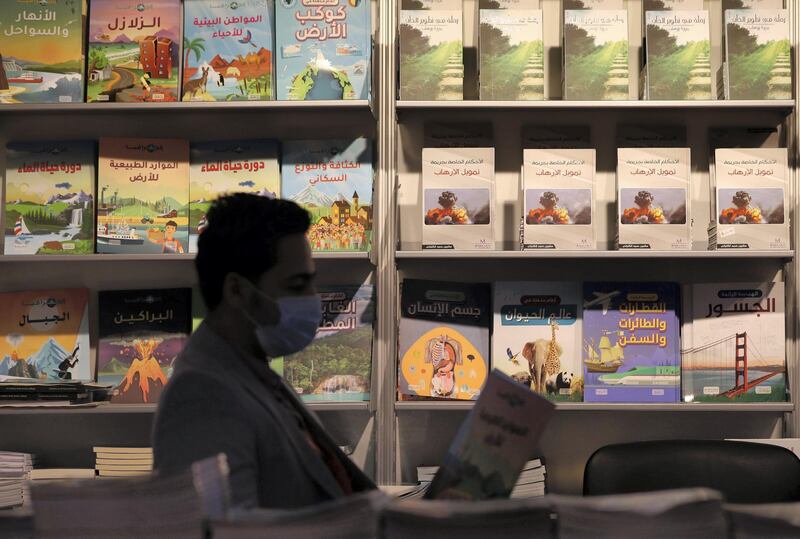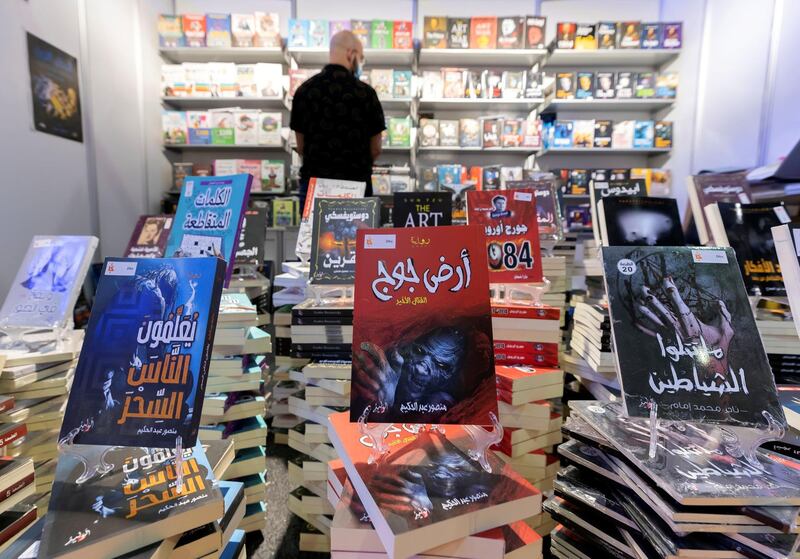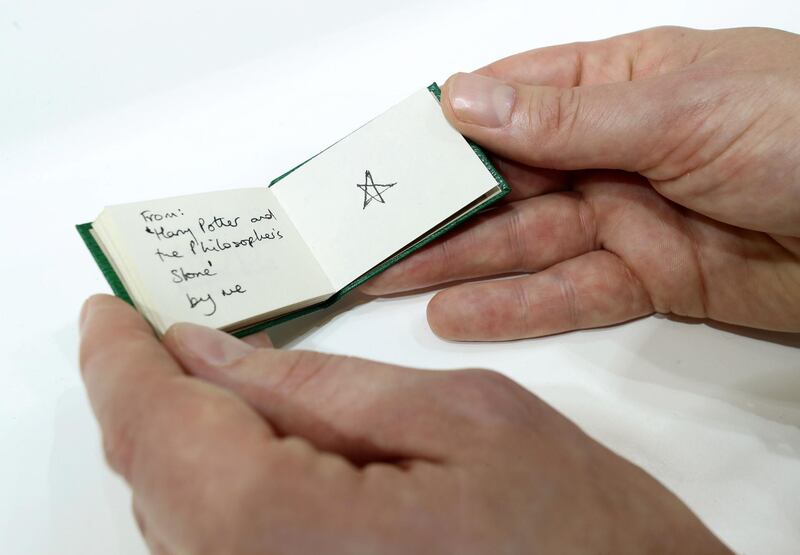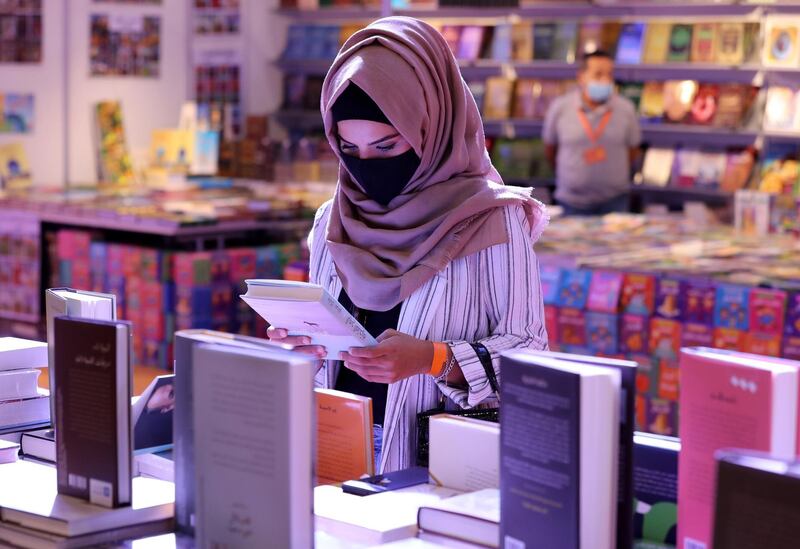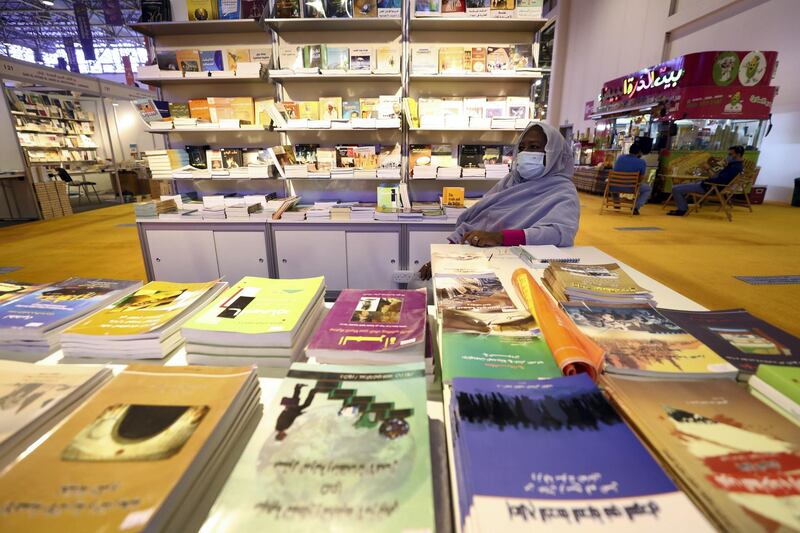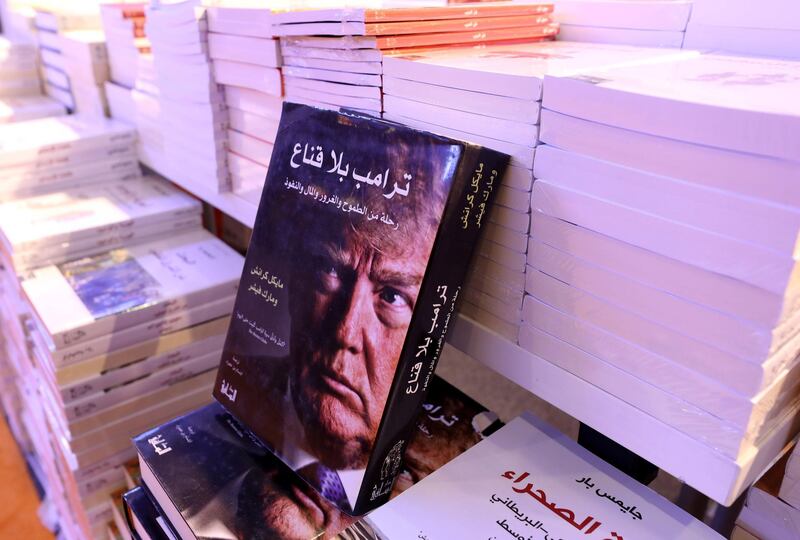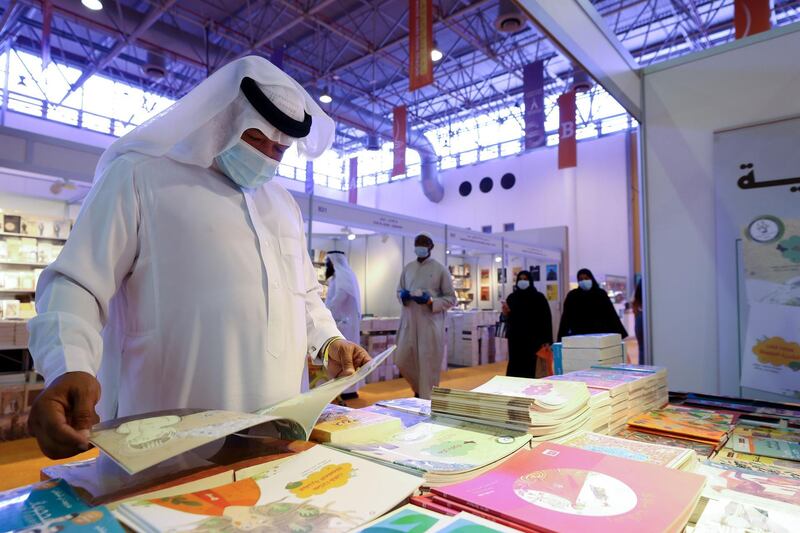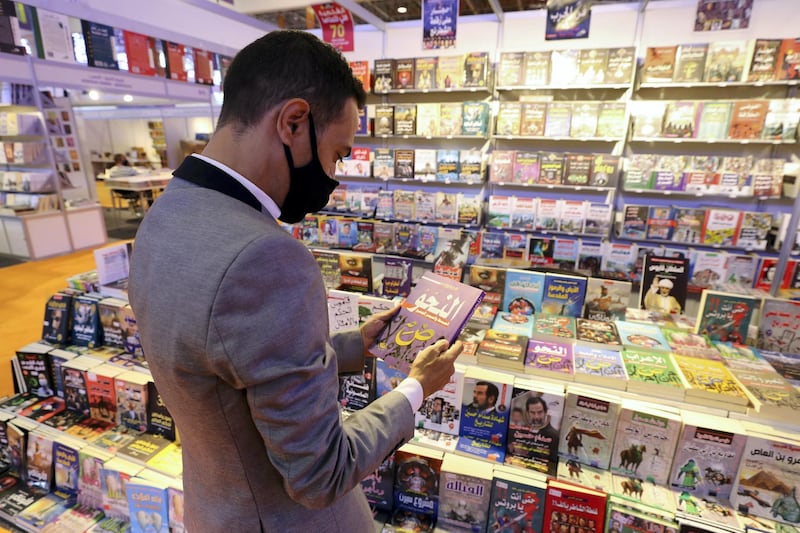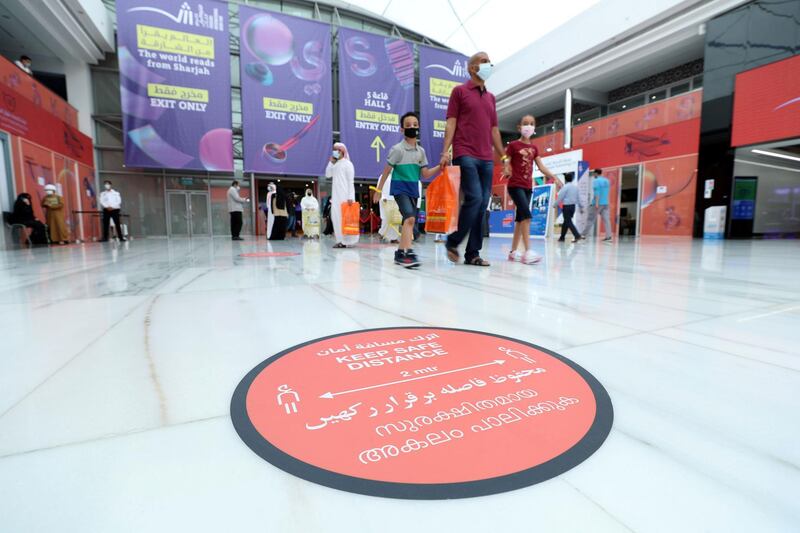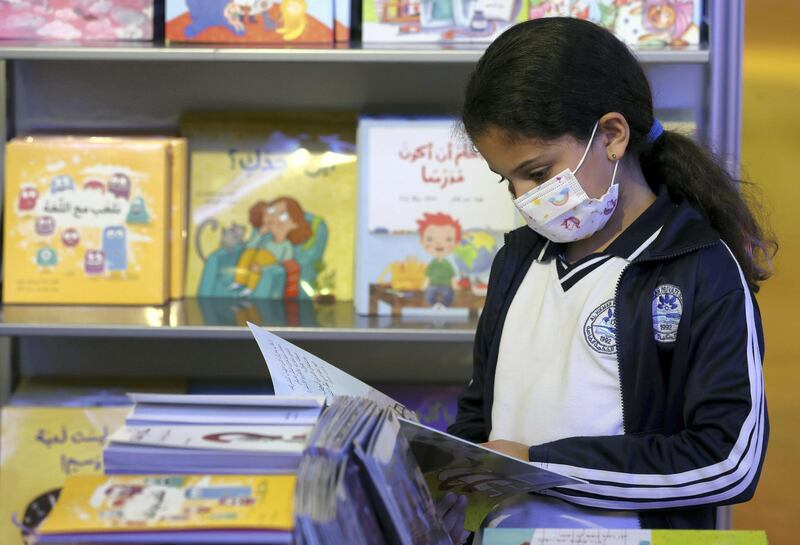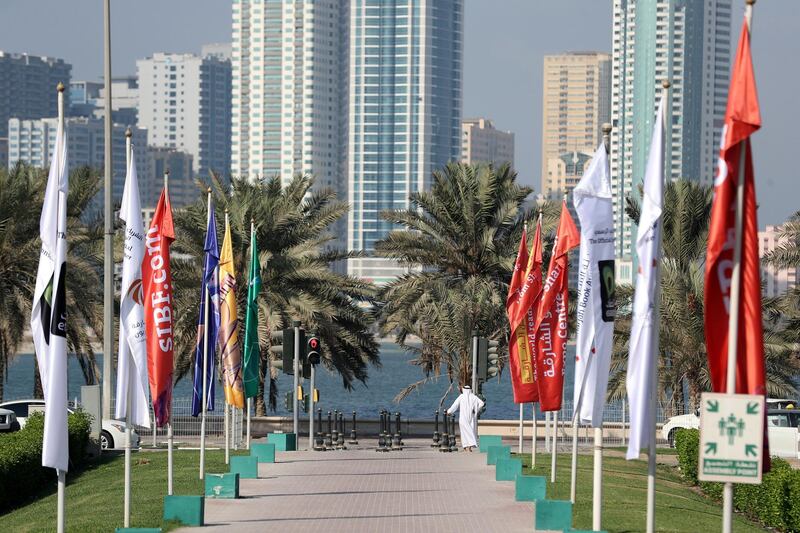At the Sharjah Expo Centre, the 39th Sharjah International Book Fair (SIBF) is under way until Saturday, November 14.
The fair has adopted a hybrid approach this year in response to the pandemic, meaning that while its cultural programme, including talks, is prerecorded and available online, publishers have still set up their stalls at the centre, as they do every year, stacking their publications on collapsible desks and lining them up on shelves. Overall, there are more than 1,000 publishers from across the world participating, to sell a whopping 80,000 titles.
This may seem unusual, maybe even defiant, given that most book fairs around the world have opted to go completely digital in response to the pandemic. But for the publishers, as well as for many of the fair's visitors, it is a welcome step towards normality.
“People don’t hesitate to visit shopping malls, and the crowds there are much larger, so why wouldn’t they come here?” Osama Makarem, a visitor at the fair, says. “Besides, they’ve implemented a number of safety measures.”
The Sharjah Book Authority has put a stringent registration system in place to prevent crowding. Guests will have to visit the fair website and select one of four three-hour time slots before they enter. Once inside the premises, they will be given a colour-coded bracelet to monitor the times of their entry and exit. Visitors will be notified by text message when their time is about to expire, but may be allowed to stay for the following time slot, space-permitting. All guests are required to wear a face mask at all times, there are thermal scanners at all entry and exit points, and the police and volunteers patrol the venue to make sure people follow the safety protocols.
The day I visit, guests are few and scattered. Although this detracts from the fair's usually bustling energy, it also means you can saunter from stall to stall at a relaxed, casual pace. Still, even with all these changes, there is something nostalgic about walking around the venue. The floor is covered in the same orange carpet. Grilled corn and fresh orange juice are still served from kiosks. And publishers are as warm and inviting as they are every year, showing off their latest books.
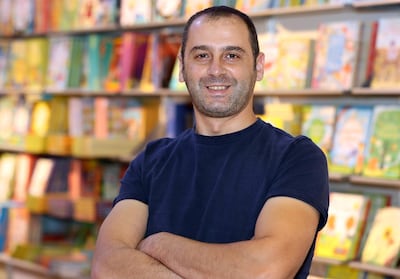
"It is a challenge," says Elias Moussallam, who works for the publishing house Librairie Stephan in Lebanon. "With everything going on, we expected fewer people to be present at the fair. So considering that, I'd say it's a success."
Mariam Abdullah Ali, who works for Khartoum University Press, says the Sudanese publishing company has been taking part in the fair for almost a decade. This year, she says, has been unlike any other.
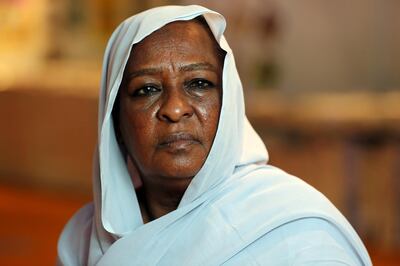
“The pandemic has definitely had an impact on the turnout. But we’re expecting more people to come during the weekend. Still, we’re glad the fair was held this year. We knew we had to take part, despite the cost. It’s one of the main events in the regional publishing world.”
This year the fair has grouped the antiquarian booksellers at one large stall, whereas in previous years, each – namely Peter Harrington, Antiquariat Inlibris and Antiquariaat Forum – had a stall of their own, exhibiting their centuries-old copies of hand-inscribed Qurans and first editions of literary classics.
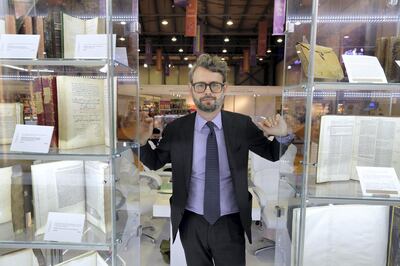
"It just made more sense that way," Ben Houston, a sales director at Peter Harrington says. The rare and collectible works on display, however, are as impressive as usual and have to be seen in person to be appreciated fully. There is a mini manuscript of Harry Potter handwritten by J K Rowling herself, an early 18th-century print of Shakespeare's major poetry, as well as first editions of Karl Marx's Das Kapital and Charles Darwin's On the Origin of Species.
But perhaps the most captivating work at the stall is a large rectangular piece of linen painted coral pink and with a navy blue border. Golden patterns on the material are revealed under a certain angle of the overhead light. The Quran is inscribed in its entirety, in minute handwritten lettering on the fabric. The 19th-century work, made in northern India, honours the last Mughal emperor, Bahadur Shah Zafar.
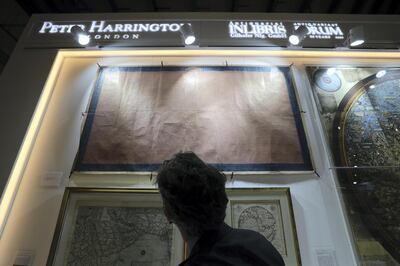
"It is hard to show these details through a photograph," Houston says. "Which is why, in my opinion, virtual book fairs pale in comparison to the real thing. For a while we weren't sure if the Sharjah International Book Fair was happening. But I'm happy they pushed through. It's the first physical fair we are taking part in since March."
More information is available at sibf.com
